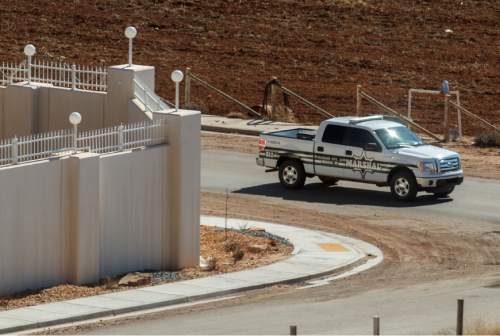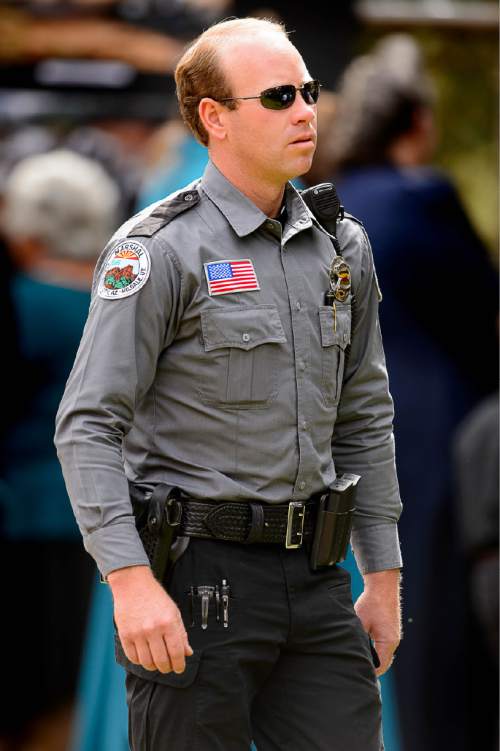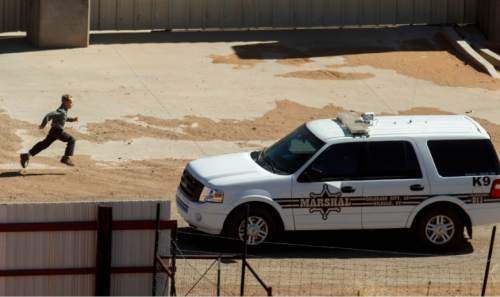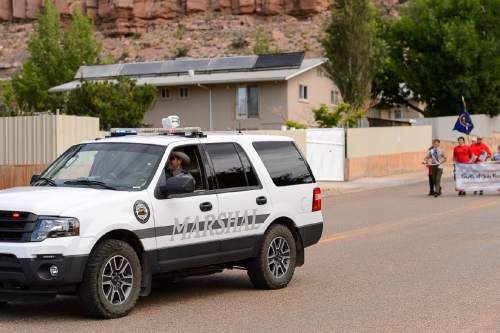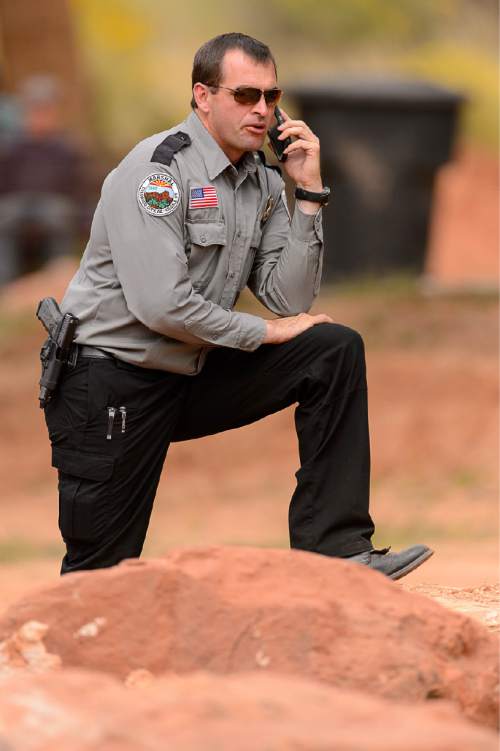This is an archived article that was published on sltrib.com in 2016, and information in the article may be outdated. It is provided only for personal research purposes and may not be reprinted.
Arizona's police regulators this week will learn about an investigation into the marshals who serve the polygamous towns on the border with Utah and could take the first step toward revoking the marshals' police powers.
The investigation by the Arizona Peace Officer Standards and Training Council, known as Arizona POST, is the latest effort to corral or eliminate the marshals who police Colorado City, Ariz., and adjoining Hildale, Utah. The towns, collectively known as Short Creek, are home to the Fundamentalist Church of Jesus Christ of Latter-Day Saints. Residents and visitors for decades have complained the marshals there favor church members.
The Arizona POST investigation has been underway for about a year, the agency's executive director, Jack Lane, said in an interview last week, and has examined five full-time and two reserve marshals — the entire municipal police force in Short Creek.
Lane acknowledged that investigators looked at arrests the marshals made in October at an old FLDS-run zoo, but said the investigation is wider.
"There were multiple instances where some of the citizens had complained about some of the officers there and some of their conduct," Lane said.
Lane declined to disclose the investigation's findings, which could be revealed during a Wednesday meeting of Arizona POST in Flagstaff. The meeting's agenda calls for the possible creation of a subcommittee to examine the marshals. The panel would then make a recommendation to the entire council at its August meeting, Lane said.
The recommendations could vary among the seven marshals, Lane said, and could range from no action to a revocation of a marshal's police certification. If the council opts to suspend or decertify a marshal, the marshal would have the option of challenging the action through a hearing with an administrative law judge. The marshal could stay on the job while the appeal is pending.
The Short Creek marshals are certified in Arizona and Utah. In previous cases in which a Short Creek marshal was decertified by one state, the other state automatically did the same. The towns then hired replacements.
Meanwhile, the marshals office is facing another threat to its existence.
After a civil trial in federal court in Phoenix, a jury in March found that the towns and the marshals discriminated against people who did not follow or were out of favor with FLDS leaders.
The U.S. Department of Justice, which was the plaintiff in the lawsuit, called a former marshal and multiple other witnesses who testified about how the marshals refused to investigate FLDS members for crimes ranging from vandalism to marrying underage girls, and how the marshals aided the church security force to surveil people and obstruct outside law enforcement. An investigator from Arizona POST sat in the courtroom for much of the trial.
The Justice Department wants the judge in the case to disband the marshals office. The county sheriffs on each side of the state line would then police the towns.
Defense attorneys for the towns in court filings have argued that the problems with the marshals are not so egregious that the office should be dissolved, and that there is no precedent for the judge to disband the office. The defense attorneys also have pointed out that no Short Creek marshals have been decertified since 2007.
The Arizona attorney for the Short Creek marshals was unavailable for comment last week. Judge H. Russel Holland, who presided over the federal civil trial, has scheduled a four-day hearing in October in Phoenix to consider what changes he should order for the towns.
In the zoo arrests, Patrick Pipkin obtained a lease from the zoo's owner to farm there. But when he and Andrew Chatwin, who works as a videographer and has investigated the FLDS, went to take possession of the property, they found someone living on the property. The marshals arrived and said the Pipkin and Chatwin couldn't be on the property until the matter was resolved in the courts. When Pipkin and Chatwin refused to leave, the marshals arrested them.
Four days later, Pipkin and Chatwin returned. Their lawyer told The Salt Lake Tribune they found women cutting holes in the fence to access the property. The marshals arrived and again arrested Pipkin and Chatwin.
They were charged in Colorado City's municipal court with misdemeanor trespass counts. A prosecutor dismissed the counts in January.
Chatwin on Friday said he has spoken to the Arizona POST investigators and with other witnesses. The investigation appears to be looking at events that happened at least six years ago, Chatwin said, and perhaps as far back as 2005, when Utah seized control of what had been an FLDS-controlled trust, called the United Effort Plan.
The investigation also appears to be examining the marshals' relationship to FLDS security, Chatwin said, and whether the marshals have ignored court orders, particularly in child-custody cases in which parents who have left the FLDS have come to Short Creek to retrieve their children.
Chatwin praised the thoroughness of the Arizona investigation. He hopes it leads to criminal charges against the marshals; not just a revocation of their police powers.
"They've done more than just violate people's civil rights," Chatwin said.
Twitter: @natecarlisle


